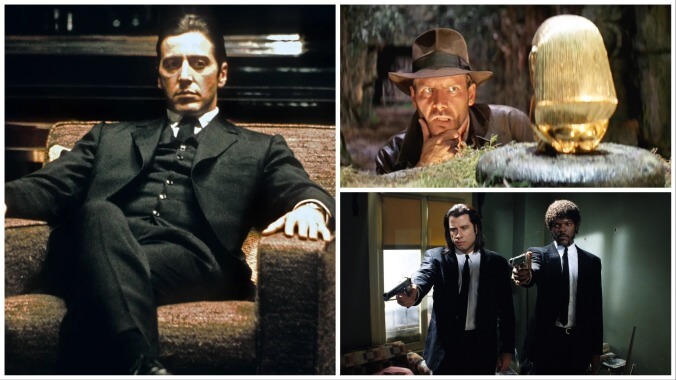Why embattled Turner Classic Movies matters now more than ever
It's no wonder that Steven Spielberg, Martin Scorsese, and Paul Thomas Anderson are fighting for TCM, an inspirational gateway to film history

If media mogul Ted Turner’s misbegotten plan to colorize beloved black-and-white movies from Hollywood’s Golden Age was a cinematic sin, his creation of Turner Classic Movies, that rich repository of historic films great and small, atoned for it a thousand times over.
This week, just a day or so after my wife and I were lamenting the sudden disappearance of the TCM “hub” of classic film content on the recently revised streaming service Max, news broke of a shocking, widespread culling of the executive ranks at TCM, part of the increasingly draconian and seemingly injudicious cost-cutting measures at TCM’s parent company Warner Bros. Discovery under its bottom-line centric leader David Zaslav.
The implications were so jarring that fabled filmmakers Steven Spielberg, Martin Scorsese, and Paul Thomas Anderson—directors whose knowledge of, and reverence for, the century-plus history of the movies has inspired and informed their own work and the work of countless others—rallied together to stage an intervention, calling a meeting with Zaslav to ascertain his ultimate intentions.
They, like me, want their TCM. We all should.
Connecting movie lovers with films and stars
Ted Turner was a master of many game-changing innovations with lasting repercussions across the cable television landscape, from 24/7 news networks to superstations. But one of his most significant and enduring contributions to the culture has to be TCM, conceived as a vehicle to package and present the many cinematic treasures—from all-time classics to forgotten gems to time-capsule curiosities—from the vast film library he’d retained after selling MGM. That well grew ever deeper and richer when he added vintage film content from Warner Bros. and the various libraries under its umbrella, along with additional licensed movies from an even broader array of studios.
Since its launch in 1994, TCM has served as a vehicle to reconnect movie lovers with films, performers, filmmakers, even entire genres that might have otherwise, save for a few towering achievements, receded from memory, as well as to introduce new generations to the cinematic pleasures of past eras of film.
The channel quickly evolved into something far more profound than just diverting nostalgia; TCM emerged as the televised equivalent of a vibrant, vital, smartly curated museum of motion pictures, where both dedicated and casual viewers could easily discover films and performances that still pack a wallop. They could also view history through the lens of the era in which the films were made; discover distinctive genres like Westerns, film noir, and screwball comedy that once reigned supreme, much as superhero cinema dominates today; explore early performances from today’s big stars; spot the visual stylings of past filmmakers that have been borrowed by today’s vanguard; be reminded of how cyclical the issues we struggle with can be over time; and simply fall in love with the sheer inventiveness of Hollywood’s best and brightest.
That TCM has remained a modestly profitable endeavor over three decades is a testament to the potency of our shared cinematic past. And if TCM is a museum, the channel’s various hosts are its docents, bringing the history behind the films to life and giving context to their place in the culture. The late, legendary Robert Osbourne was the prototype. His insider ties to Hollywood’s storied past gave that history a beating heart. Today, the hosting styles range from half-professorial, half-movie geek, like Ben Mankiewicz, to uber-passionate genre obsessive, like film noir specialist Eddie Muller, to socially enlightened authority on female directors, like Alicia Malone. All of it serves to enhance the movie magic on display before and after a film unspools; much of this behind-the-scenes exploration proves as inspiring as the movies themselves.
A source of inspiration and influence
Cinema history constantly and profoundly pays it forward with tremendous dividends: Spielberg and George Lucas displayed their abiding affection for cliffhanging movie serials with Star Wars and Raiders Of The Lost Ark. Scorsese and Francis Ford Coppola elevated the lurid gangster films of their youths with gravitas and deeply felt characters in Goodfellas and The Godfather. Anderson and Quentin Tarantino found high-art expression in cheaply made, oft-dismissed film forms with Pulp Fiction and Boogie Nights. Many of the films that influenced those directors can be found on TCM, which speaks to the channel’s higher purpose; to inspire future generations of filmmakers and to bring virtual film studies coursework directly to the masses.
According to Spielberg, Scorsese, and Anderson, their conversations with Zaslav offered a considerable ray of hope for TCM’s future of showcasing cinema’s past. “Our primary aim is to ensure that TCM’s programming is untouched and protected,” the filmmakers said in a joint statement. “We are heartened and encouraged by the conversations we’ve had thus far, and we are committed to working together to ensure the continuation of this cultural touchstone that we all treasure.”
It’s said constantly that in the modern world of streaming content is king. And in that respect, Turner Classic Movies is a glittering array of jewels deserving to be ever on public display. Or to put it in more classical cinematic terms, it’s the stuff dreams are made of.